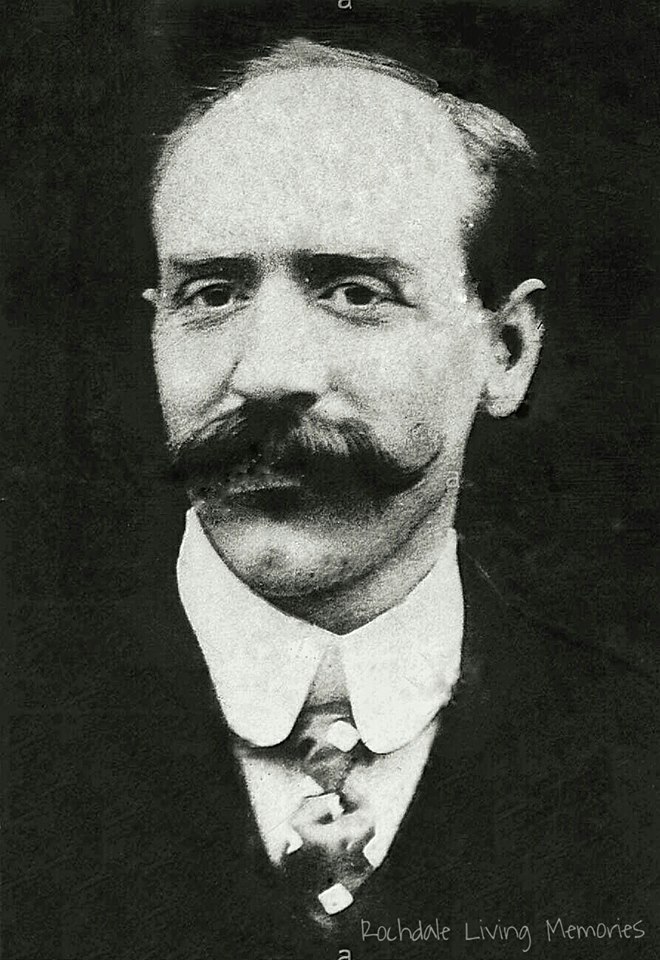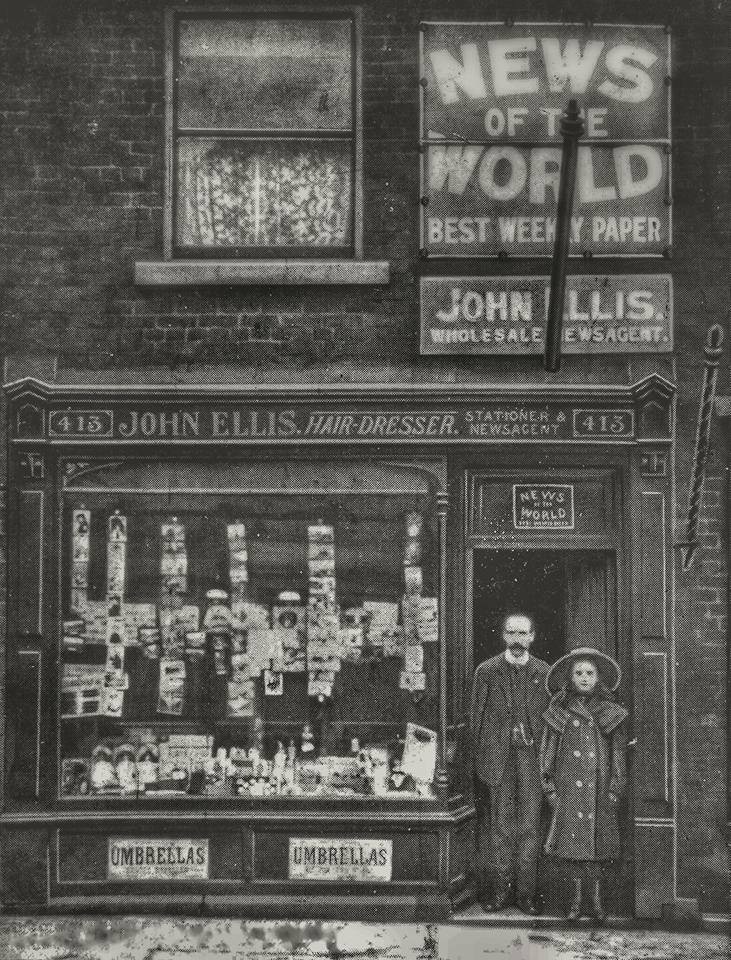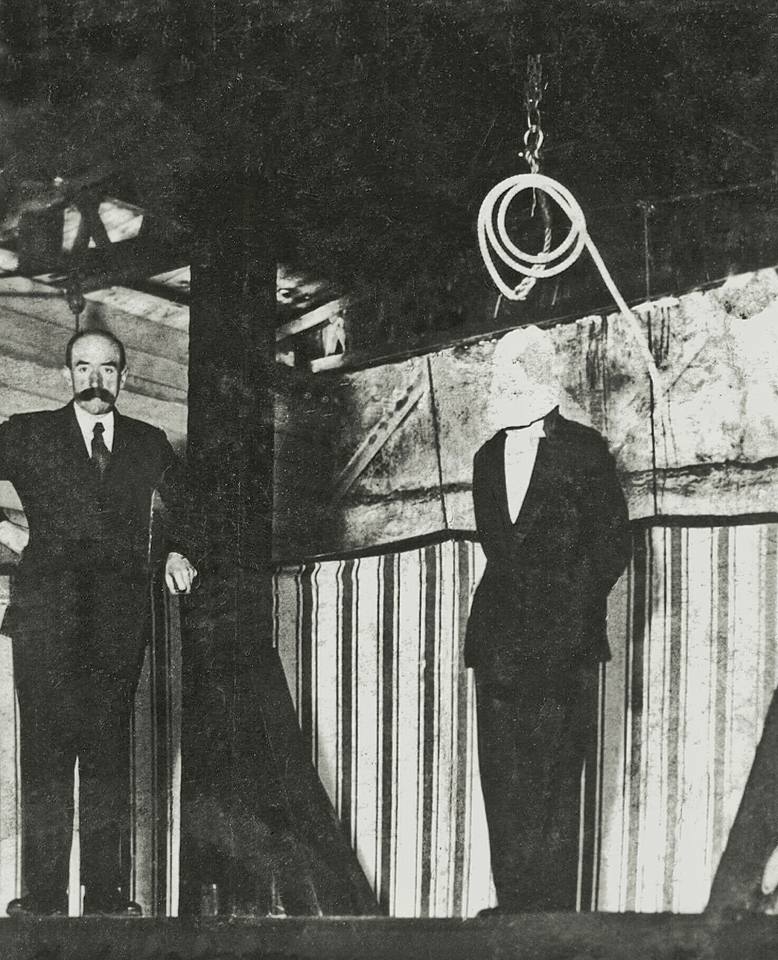John Ellis: Hangman

We like to think that we live in more enlightened times. We have better health, education,
sanitation etc. and these things have improved our well-being. Social life has changed too through
laws and shifts in moral attitudes. For example the once contentious debate around capital
punishment was settled in 1965 but for a long time was accepted and thought to deter the most
heinous crimes, especially murder. One man significant to this debate – John Ellis – was from
Rochdale. Born on Broad Lane in 1875, Ellis’ father was a hairdresser with multiple premises in the
town one of which was at 18 Oldham Road where he cut men’s hair, shaved them and had a side-
line repairing umbrellas.
On leaving school, John was as a spinner, a job he held for seven years before, as a result of an
industrial injury, leaving to work as a drayman and then as an engineer with Tweedale & Smalley’s
after which he decided to follow his father in the hairdressing (and umbrellas) business. Even as
young boy however, John harboured the desire to be an executioner (not something every
schoolboy aspired to) and true to his dream in the first year of the 20 th century completed an
application for public hangman and was granted an interview at Strangeways prison in Manchester.
His father was displeased with this turn of events and threatened to cut the young man off from his
inheritance should he go through with it, a threat he later carried out. His interview with the
Governor of Strangeways went well and twenty-five year old John was sent for training at Newgate
Prison in London, taking aptitude tests before being successfully added to the list of public
executioners. John Ellis qualified in 1901 and was granted his first job as deputy to William Billington
on a double hanging in Newcastle Jail in December of the same year.

Showing great application and an interest in his profession, John Ellis soon rose to the position of
assistant national executioner after which his career and reputation grew until in 1912 he was
Britain’s foremost hangman. Records and his autobiography suggest that in order to deal with the
moral hazards of his role, he would attend trials of those being prosecuted so that ‘he would know
he was right’ if he had to carry out his duties.
John Ellis served as a hangman between 1901 and 1924 and during that time officiated at a number
of notable, national events. Among those were the murderer Hawley Harvey Crippen (known as Dr.
Crippen) who infamously took the life of his wife, Frederick Seddon the arsenic poisoner and George
Smith of the ‘brides in the bath’ murders, as well as the Irish Nationalist sentenced to death for
treason, Sir Roger Casement. In total Ellis was in charge of over 200 executions one of the last of
which was the hanging of Edith Thompson in 1923 for collusion with her lover over her husband’s
murder. This execution left a lasting and profound impression on Ellis. At the scaffold, so terrified
was Thompson that she had to be tied into a chair by four prison warders before being hanged. Not
only that, but the hanging was messy, prolonged and traumatising for all who witnessed it.
Perhaps because of this ordeal, John Ellis chose to retire in March of 1924. Interestingly his opinions
on the deterrent effect of capital punishment were made clear in his book ‘Diary of a Hangman.’ He
writes that he thought that ‘hanging did not deter them when they committed what they were
convicted for. All the men and women whom I have faced at that final moment convince me that in
what I have done I have not prevented a single murder.’ Ellis went into hairdressing on retirement
from his national post but sold the barber’s shop at 413 Oldham Road to become the landlord of a
Lowerplace pub. This, however, proved short-lived and he returned to hairdressing.

Even when he was a hangman, Ellis was well known for drinking heavily and this may have
contributed to manic depression that followed him after his retirement, his instability spilling over
both into threats of violence to his family and an attempted suicide in 1924. In 1927 Ellis lost a great
deal of money in a failed theatrical venture which recounted the story of the murderer Charles
Peace. Featuring Ellis in a non-speaking role, the show caused moral uproar and was abandoned.
However, Ellis kept the stage scaffold and used it in a bizarre if not horrific demonstration of his
skills, setting himself up as entertainer with a travelling sideshow at seaside resorts throughout
England and working from time to time with Billy Smart’s circus.
Depression and drink eventually got the better of Ellis and in 1932, after a heavy bout of drinking he
cut his own throat with a razor – possibly from his father’s hairdresser’s shop – and died. Capital
punishment in the United Kingdom continued until in 1965, an enlightened government felt that ‘the
use of the death penalty undermines human dignity; any miscarriage of justice leading to its
imposition is irreversible and irreparable, and there is no conclusive evidence of it working as a
deterrent to crime.’